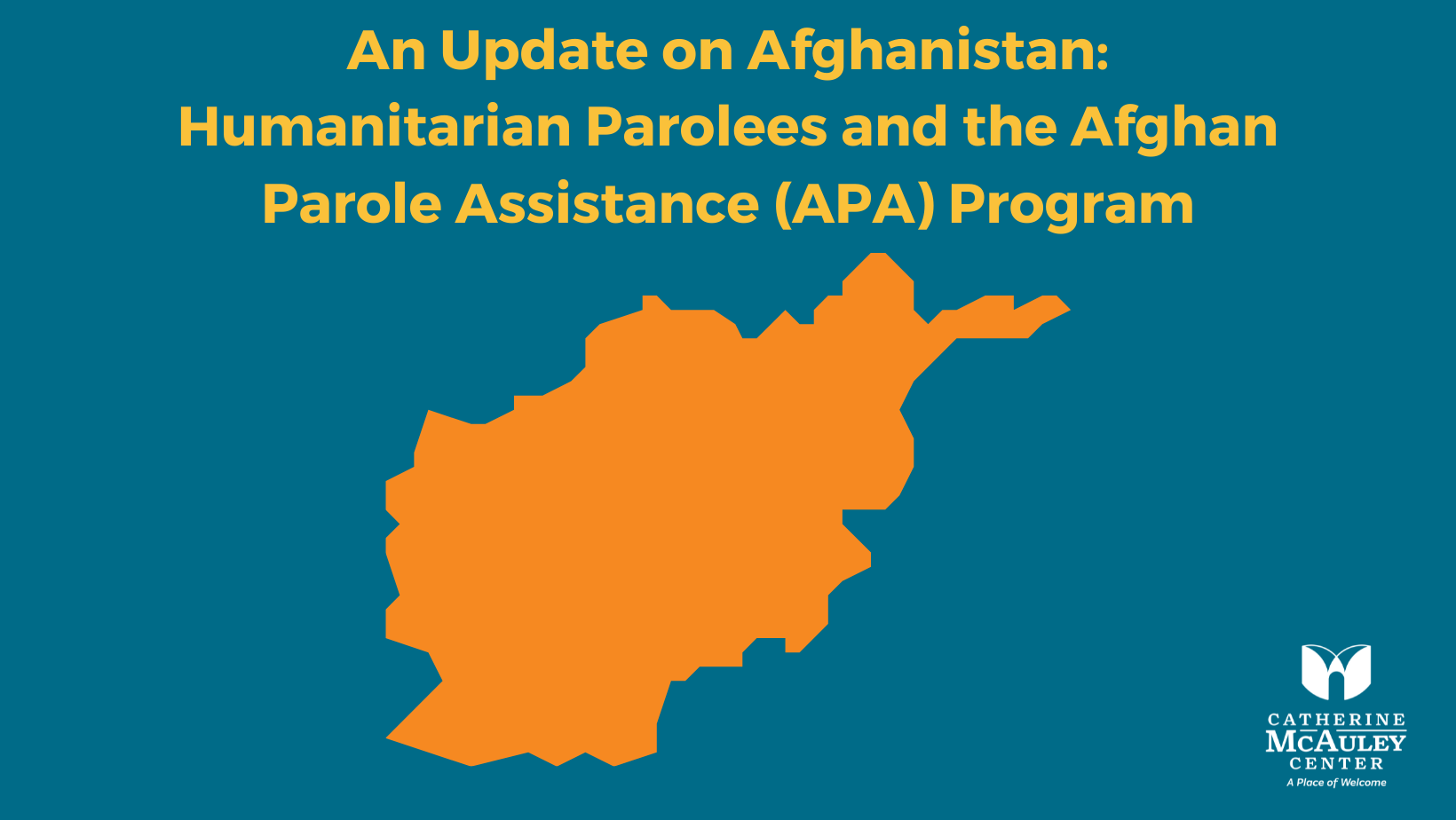At The Federal Level
Over the course of the last few months, the United States Department of State, Bureau of Population, Refugees, and Migration (PRM) has been working to create a program for the reception and placement of Afghans who have been granted humanitarian parole in the U.S. As a result, resettlement agencies like the Catherine McAuley Center have been following the development of the new Afghan Parole Assistance (APA) program closely. The APA program offers similar types of support that refugees receive when they are first resettled in the United States. This includes providing benefits such as: work eligibility, food/cash assistance, various case management programs, etc. While there are temporary supports in place for the individuals fleeing from Afghanistan, the APA program does not currently address the long-term needs of Afghan parolees, as they will have to adjust their immigration status within their first two (2) years in the United States.
CMC’s Role
Since you last heard from us, CMC was awaiting information from the federal government as to whether any Afghan parolees would be directed to Eastern Iowa for resettlement. The situation was (and still is) ever-changing, but Catherine McAuley Center is clear in our stance that we are ready to welcome and support Afghans as they settle into our local communities and work to establish the safety and stability that every person deserves.
With the APA program in place, Catherine McAuley Center has committed to receiving up to 250 individual cases from Afghanistan between now and September 2022, in addition to our commitment of 300 individual refugees through the Refugee Reception and Placement program. We look forward to helping this new population make Eastern Iowa their home, and we are working hard to ensure that CMC is equipped with the resources to meet the specific needs of Afghan parolees. This includes the opening of new case management positions, specifically for individuals with language skills in Dari and Pashto. Any open positions at CMC will be listed on the careers page of our website.
At The State Level
State officials have expressed support for helping Afghan parolees as they enter our communities across the state. Finding employment and appropriate housing options for Afghans has been a focus for the state as we prepare for the first phase of arrivals from Afghanistan.
During this time of uncertainty, the statewide network of resettlement partners has been extremely communicative with each other, ensuring that everyone has the most up-to-date information on how Iowa will play a role in the resettlement process for Afghan Parolees.
What You Can Do To Support Afghan Parolees
There are a variety of ways to help Afghan parolees find safety and stability as they arrive in Cedar Rapids. Through this google form, you can identify yourself as someone who is willing to provide support for refugee and Afghan families in any of the following ways:
- Volunteering time to support new refugees and Afghan arrivals
- Volunteering time to tutor refugees and immigrants in English
- Using language skills (i.e. Pashto, Dari, Arabic, Swahili, Kirundi, Kinyarwanda, Lingala, French, Karenni, Karen, or Burmese) to provide interpretation to refugees and Afghans
- Providing potential job opportunities for refugees and Afghan parolees
- Connecting refugees and Afghans with housing/rental opportunities
- Donating items to support refugees and Afghans
One of the best ways to help is through unrestricted funding. As we seek new support through case management, and as various needs come up during the resettlement process, unrestricted funding allows CMC to best meet the needs of the communities we serve.
CMC expects to receive up to 550 parolees or refugees this year, and has a responsibility to provide the same access and resources to each of those clients. Therefore, we cannot facilitate donations directly to Afghans.
We appreciate the outpouring of support over the last few months for Afghan individuals and families, and we look forward to continuing to engage the community in supporting all of the individuals and families who are making Eastern Iowa their home after fleeing from life-threatening circumstances.


